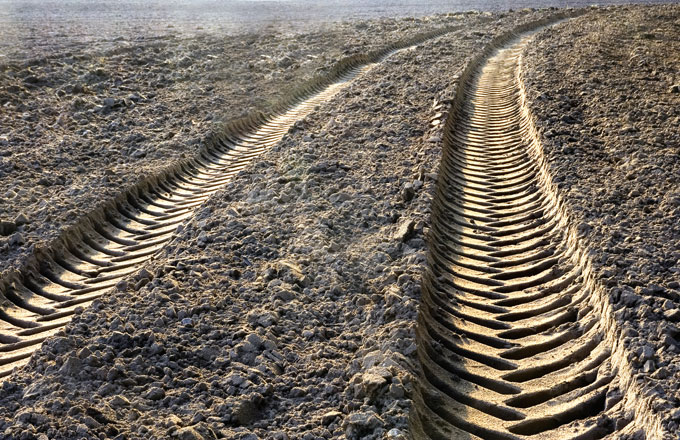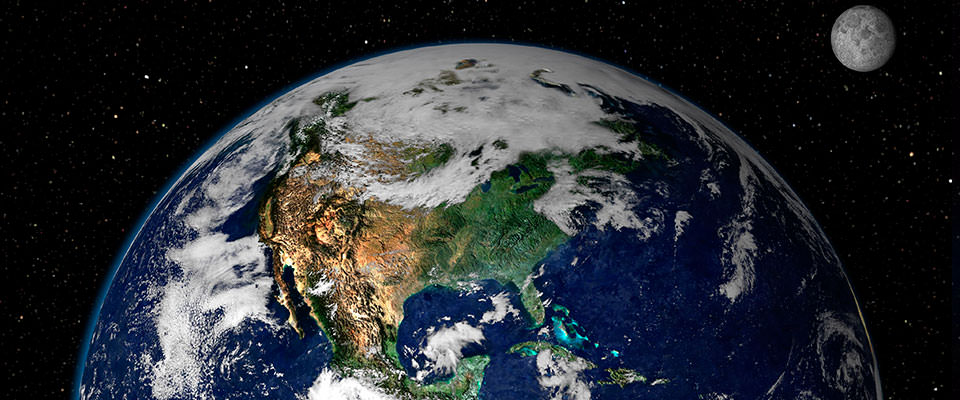Devastating and enduring impact of conflict on our planet

November 2nd, 2018
On a warm afternoon in August 1945, when World War II was taking its last breaths, an atomic bomb fell on the Japanese city of Hiroshima. Three days later, another one hit the neighbouring Nagasaki.
The bombings prompted an inferno of horror with locals in Hiroshima convinced that Americans had steeped the entire town in gasoline before setting fire to it.
Both events also left a devastating and enduring impact on our planet. When an atomic bomb detonates, the blast kills or poisons everything within a two-mile radius. In Hiroshima, for example, the nuclear blast led to the formation of a “fireball” which exposed everything on its path to harmful thermal radiation.
Researchers have concluded that atomic radiations are able to penetrate into streams and kill marine species in large numbers. Genetic mutations in all types of species is another by-product of atomic radiation.
Surviving animals and humans may develop cancer and can pass on diseases to their offspring for many generations to come. The atomic fallout can also contaminate the entire food chain.
Today, international organisations, are working together to thwart another atomic Armageddon. Except for India, Israel, Pakistan and South Sudan, all countries have signed a United Nations treaty which stipulates a ban on the proliferation of militant atomic capabilities.
Nevertheless, conventional bombs and ammunition are invariably dropped on various conflict zones around the world. While not a primary target, the environment pays a hefty price.
Wim Zwijnenburg, a Netherlands-based reporter, who has spent years investigating the impact of conflicts on the environment, says the area is highly “under-researched” and “underfunded”.
Mr Zwijnenburg became interested in the topic while working at a Dutch humanitarian disarmament non-profit called PAX. “During the course of our work, we came across concerns from local communities about the environmental impacts of conflicts that were not addressed properly,” he says.
Countries with a history of extreme weather events, due to climate change, have developed a fragile environment which is increasingly intolerant to war, he says.
He has since collected an extensive amount of ecological data from Iraq and Syria, finding that countries significantly affected by climate change are paying an enormous price during wartime.
Mr Zwijnenburg documented a cornucopia of war-fuelled environmental pollutions in Iraq, such issues with oil refineries, power plants, and broken sewage systems. “We saw similar issues in South Sudan, Syria and Libya.”
The war in Iraq, along with desertification as a result of rising temperatures, also affected the country’s air quality, Mr Zwijnenburg says, and also triggered problems in the neighbouring Iranian city of Ahvaz. In 2016, Iran’s chief of Environmental Protection Agency expressed concern over what she described as Iraq’s “dust pollution waves” entering Ahvaz.
In what has been described as “a gross act of ecoterrorism”, Iraqi troops also inflicted incredible damage to the environment during the Gulf War by releasing about 11 million barrels of oil into the Persian Gulf, contaminating nearly 1,290km of the region’s coastline. The incident adversely affected numerous marine species.
The Syrian conflict is the first war in which climate change was recognised as an influential factor for civilians’ dismal living conditions during the war.
Some of those chemical gases used during the conflict, specifically a nerve agent VX, are highly persistent and evaporate into the air at snail’s pace, thus remaining in the atmosphere long enough to cause enduring hazardous environmental pollutions.
Dr Douglas Cubie, who teaches International Law at University College Cork (UCC), says international protocols and conventions mostly limit Governments when it comes to bombs and ammunition.
“Even before the first World War, there were international conventions in place to ban the use of mustard gas and such,” he says. “Particular types of weapons are so heinous because of their impact on humans and the environment that they should never be used in wars.”
Some governments, however, fail to comply. The Syrian regime was subjected to a wide range of international sanctions and condemnations after evidence pointed to their use of forbidden chemical gases during a few air strikes.
The ongoing conflict in Yemen, where temperatures have accelerated to record levels, has resulted in tragic human and environmental consequences.
According to a recent Dutch study, the conflict has led to extreme water paucity and a lack of arable land in the country. The study reveals that both sides involved in the conflict are using water as a strategic weapon by blocking each other’s access to it. This has influenced Cholera outbreaks and famine with 3.3 million Yemeni children and pregnant women suffering from malnourishment.
The International Committee of the Red Cross (ICRC) has issued guidelines and instructions, specifically designed to protect the environment from military activities. The guidelines grant considerable amount of power to international courts to shield the environment from warfare.

Oil well fires rage outside Kuwait City in the aftermath of Operation Desert Storm Photo: Tech. Sgt. David McLeod
Dr Cubie, who has worked with several humanitarian organisations including the Irish Red Cross, says that Governments must disclose the content of their newly-developed weapons to international organisations to stipulate that their use would not lead to ecoterrorism or unspeakable human disasters.
Mr Zwijnenburg says that if journalists, researchers and non-profit organisations around the world, came under one umbrella to highlight the environmental influence of war, the area could eventually attract international attention.
“We try to look for avenues internationally, where we could address these issues and push this agenda,” he says. “That is why we launch a statement every year on November 6, hoping to expand our list of organisations and experts.”
For this year’s International Day of the Impact of War on the Environment, nearly 30 organisations have joined PAX pledging not to let the voices of communities affected by the environmental dimension of armed conflicts go unheard.
[x_author title=”About the Author”]







